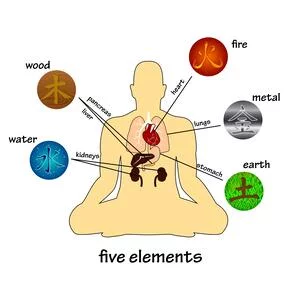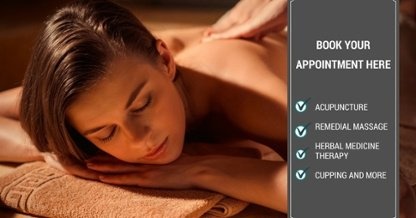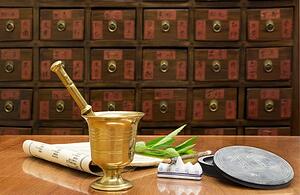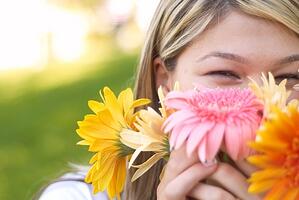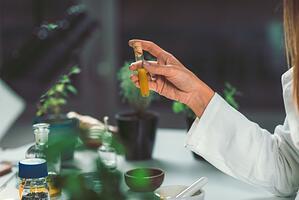You wouldn’t knowingly eat dangerous, synthetic chemicals, so why slather them all over the largest organ of the human body? Consider opting for the more holistic path of TCM (Traditional Chinese Medicine) herbs to help to heal your skin condition,– backed by both research and thousands of years of history.
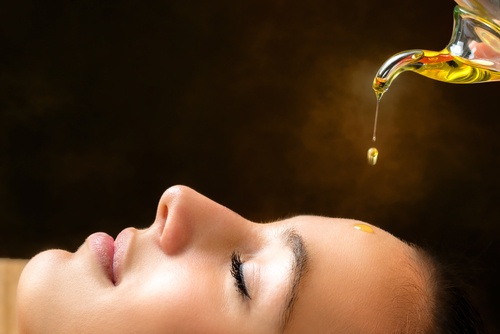
TCM “addresses establishing and maintaining the balance of yin-yang (two opposite-but-complementary forces), the homeostasis of organ systems in the body, and interactions with the environment,” explains Dr. Xiu-Min Li of the Icahn School of Medicine.
As we noted in an earlier article on skincare, the root cause of many skin conditions can include factors like the ying-yang imbalance Dr. Li mentions, plus dampness, heat and dryness.
TCM aims “to modulate these imbalances using a combination of lotions, creams, baths, teas, pills,” Li elaborates, “and sometimes acupuncture and acupressure, which calm the immune system so that it eventually becomes less reactive.”
The three following TCM herbs are worth exploring for your own conditions, as research suggests they can effectively aid in transforming the health of your skin.
JIANPI CHUSHI
Jianpi Chushi decoction, an aqueous preparation of boiled plant parts, has shown great promise in the treatment of eczema. Eczema is characterised by itchy, blotchy, irritated skin — a condition which is often treated with topical medications or steroids, products that can cause unwanted side effects like the thinning, thickening, darkening or further irritation of the skin.
“Because of the complexity of plant materials,” Kathleen Rushall at the Pacific College of Oriental Medicine explains, “[TCM] is far more balanced than medicine that is based on isolated active ingredients, and is far less likely to cause side effects.”
An alternative to these often harsher treatments may be the TCM herb Jianpi Chushi. A study administered by Zhengzhou University concluded that “Qral Jianpi Chushi decoction could treat chronic eczema effectively, and oral Chinese medicine combined with ointment could enhance and speed up the efficacy.”
Xiao-Feng-San (XFS)
Another study on eczema administered by researchers from China Medical University using a treatment with the Chinese herbal product Xiao-Feng-San (XFS) showed “the decrease in the total lesion score in the treatment group at 8 weeks was significantly greater than that of the placebo group … There was also a statistically significant difference between the treatment and placebo groups with regard to erythema, surface damage, pruritus and sleep scores.”
The authors also noted that patients reported no side effects aside from the unpalatability of the medication. Eczema “often fails to respond adequately to topical steroids and oral antihistamines and requires immunomodulatory drugs which, although effective,” the authors note, “have undesirable toxic effects.”
“Our study results suggest that the traditional Chinese herbal medicine XFS may be an alternative choice of therapy for severe, refractory, extensive and nonexudative atopic dermatitis,” the researchers concluded.
Viola Yedoensis
A flowering plant of the violet family of Violaceae, viola yedoensis has antibiotic, anti-inflammatory and antipyretic (fever-reducing) properties, according to a review authored by Tianjin University of Traditional Chinese Medicine and the Ethiopian Health and Nutrition Research Institute. The authors note that it is used for the treatment of acne, eczema, impetigo (a bacterial skin infection), pruritus (severe skin itching) and cradle cap (a skin condition with areas of yellowish or brownish scales sometimes seen in babies).
One study at the Shanghai University of Traditional Chinese Medicine, for example, showed that the Viola yedoensis Makino Anti-itching Compound (VYAC) — which consists of Viola yedoensis Makino, herb, Sophora flavescens Aiton, root, and Dictamnus dasycarpus Turcz, root and rhizome — down regulated inflammatory cytokines expression to block inflammatory development.
To make sure you are getting the right herbs and correct advise it is important you visit a TCM practitioner. This is just a small sampling of the healing power of plant-based medicine can have on you. Contact us today to learn more about how TCM herbs can help revitalise your skin.
To book an appointment with the SITCM Teaching Clinic complete your details below.

